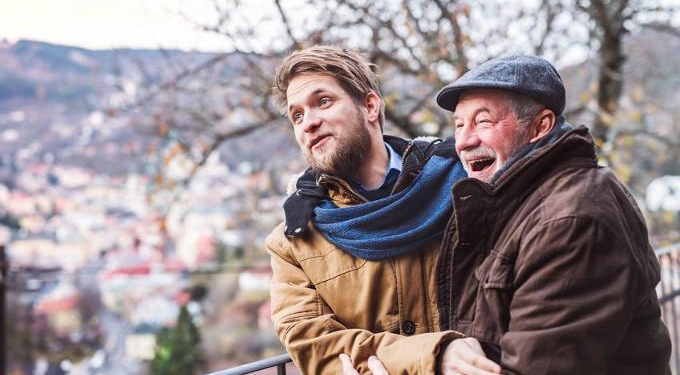
By Jill Suttie | Greater Good Magazine
We all know that it’s good to be kind to others. Kindness is an important virtue for sustaining relationships, which helps to build a trusting and cooperative society.
You may have also heard that kindness makes you happier and healthier. But what does that mean for you? What acts of kindness will make us happiest, and who tends to benefit the most?
A newly published review of decades of kindness research provides some answers.
In this paper, researchers analyzed the results from 126 research articles looking at almost 200,000 participants from around the world. The studies they chose all had to meet certain criteria, such as including only adults and reporting good statistical data; some were experiments, where people did a kindness practice to observe its effects, while others just surveyed people about how kind and happy they were. The studies measured well-being in a variety of ways, including both mental and physical health.
As expected, people who were kind tended to have higher well-being. Lead researcher Bryant Hui was surprised the relationship was not stronger than it was, but he was still encouraged by the results.
“Although the overall relationship between prosocial (kind and helpful) behavior and well-being is weak, given that so many people around the world act prosocially, the modest effect can still have a significant impact at a societal level,” he says.
A small effect like this—an average of all the participants’ experiences—can sometimes hide other patterns going on below the surface. So, he and his colleagues considered when kindness might have a bigger impact on our well-being.
One thing they found was that people who performed random, informal acts of kindness, like bringing a meal to a grieving friend, tended to be happier than people who performed more formal acts of kindness, like volunteering in a soup kitchen. It’s possible that informal helping may fill our more basic psychological needs for autonomy and close relationships, which is why it could lead to greater happiness.
The researchers also found that people who were kind tended to be higher in “eudaimonic happiness” (a sense of meaning and purpose in life) more than “hedonic happiness” (a sense of pleasure and comfort). Perhaps this makes sense, given that being kind involves effort, which takes away from the comfort but could make people feel better about themselves and their abilities, which would provide a sense of meaning.
Being kind came with greater eudaimonic happiness for women than for men, too. According to Hui, this could be because, in many cultures, women are expected to be kinder than men; so, they may have more to gain from it. And younger participants experienced more happiness when they were kind than older participants, perhaps for developmental reasons, he says. Younger adults are at a stage of life where they tend to be figuring out their identity and actively seeking the purpose and meaning in life that kindness can bring, less so than pleasure and comfort.
What other, specific benefits might kindness have? The researchers found that people who were kind tended to have higher self-esteem and a sense of self-efficacy. To a lesser degree, they also experienced less depression and anxiety and improved physical health—with the links to health being strongest in older adults.
Hui doesn’t know for sure why acting kind might have these different effects on different groups, but he points to theories put forth by researcher Elizabeth Midlarsky: Being kind may make us feel better about ourselves as a person or about the meaning of our lives, confirm our self-competence, distract us from our own troubles and stressors, give us a warm-glow feeling, or help us be more socially connected with others. All of these could potentially improve our well-being—reducing our stress, improving our mood, or providing community—and they could hold more importance at different stages of life, too.
By understanding the connection between kindness and well-being, Hui thinks researchers can design better studies that take into account all of the relevant factors, and innovators could create more effective kindness practices. In the future, he hopes there will be kindness apps or online programs that could reach more people, generating a larger impact around the world.
In the meantime, Hui says, the biggest take-home from his research is something he heard the Dalai Lama say long ago: “If you want others to be happy, practice compassion. If you want to be happy, practice compassion.”
“Helping others is a universal virtue and a very affordable and economic way to benefit others’ and our own well-being,” he says. “As the saying goes, helping others is helping yourself.”

















